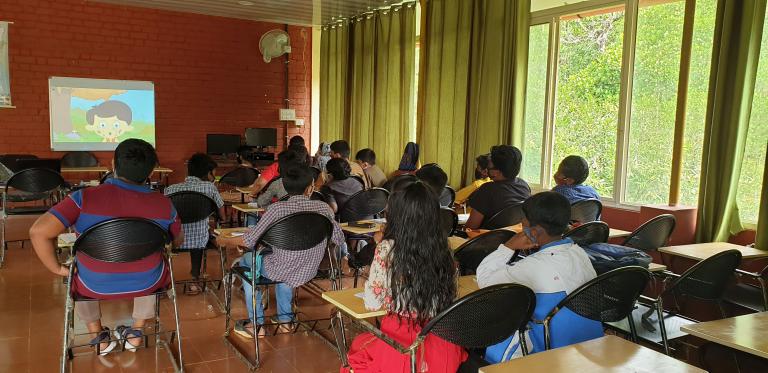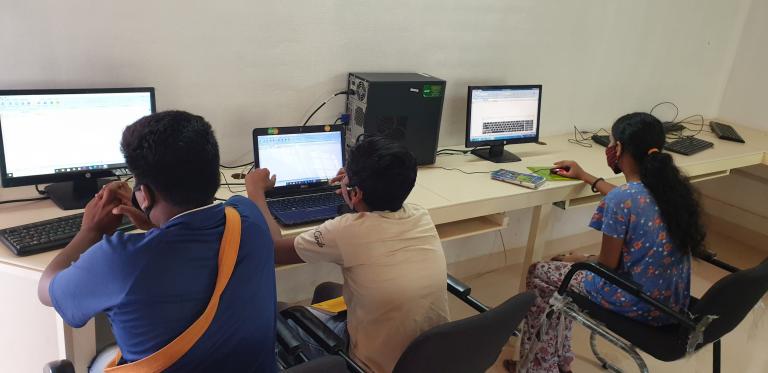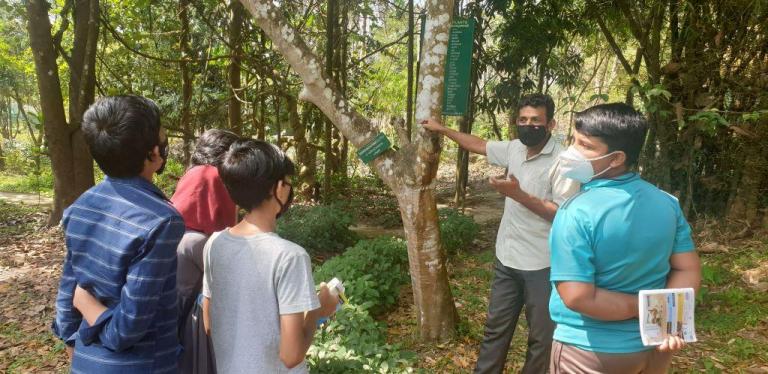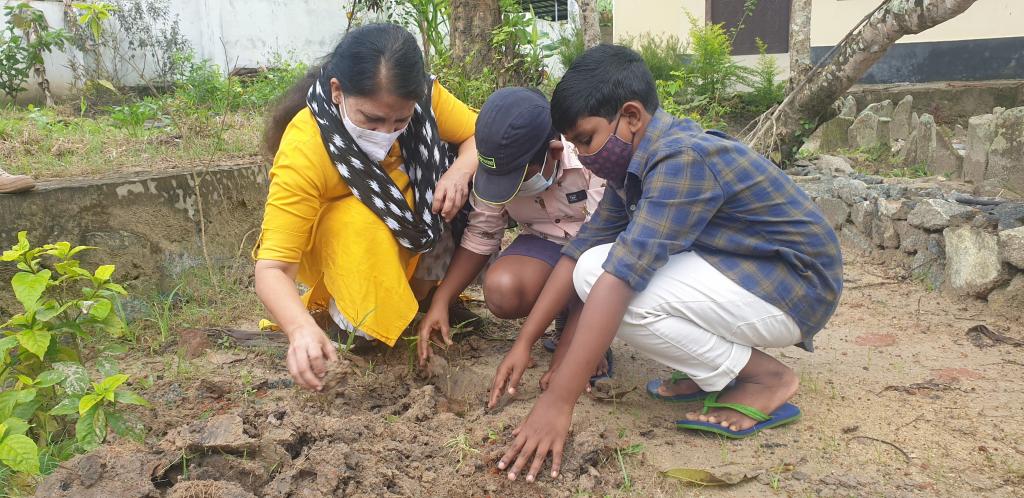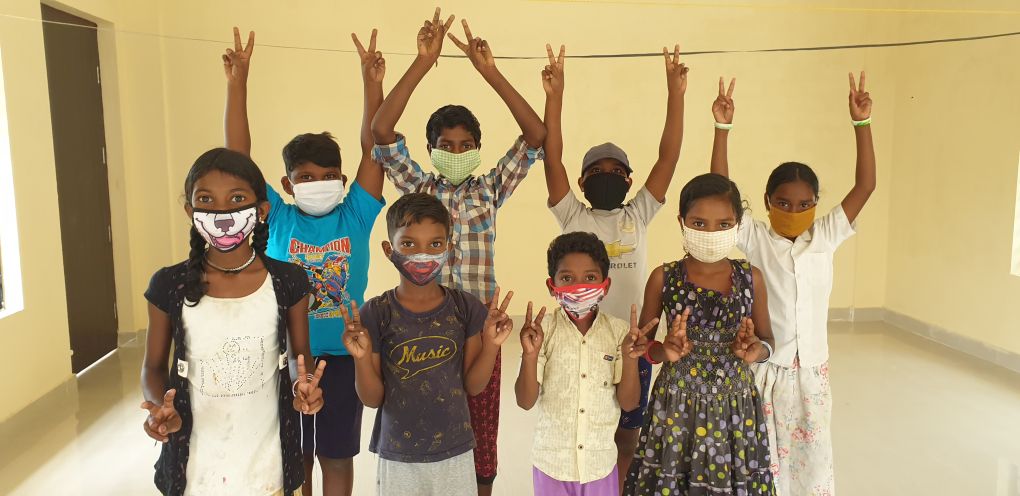Tribal Youths were trained in computer and biodiversity aspects at the time of pandemic.
Covid-19 pandemic has made a paradigm shift in the education system of every state in India wherein conventional learning has switched over from schools to homes. This sudden change was rightly catalyzed by the adept application of science and technology tools where ICT (information & communication technology) could play a significant role. However, the tribal students who reside in the villages do not have ready access to the internet, mobile phones, computers and other novel technologies. Moreover, the economically backward situation of most of the tribal villagers forms the natural setback that prevents them from entering the mainstream.
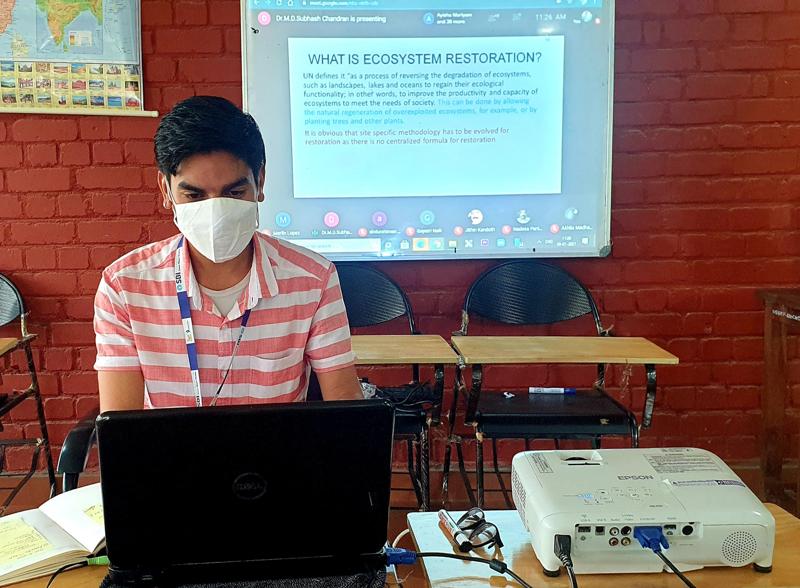
In this context, an initiative to educate the tribal youth from selected villages of Kalpetta with the support of SBI Youth for India fellowship program by SBI Foundation was taken up by one of the SBI fellows, Mr. Ankit Sengar.
Tribal students of 30 numbers were selected from the nearby settlement of the Mangavayal and Kalapurakal tribal colonies that are near the institute. All these 30 students were trained in the basic aspects of computer knowledge coupled with the importance of biodiversity. Since these two tribal hamlets are close to the CAbC, the students found it easier to come to the institute. CAbC provided all the basic facilities to get these tribal youths trained and allotted the computer centre as well with 10 working computers for the purpose. All these computers were provided with internet facilities so that the students could connect to the required websites and portals. Students could access this facility with the support of the system administrator of MSSRF. In addition to this, the Botanical Garden of the institute was open to these students to get access to the myriads of biodiversity.
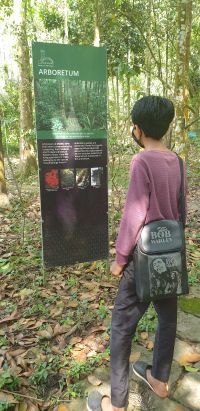
In the first phase of activities, study material was generated with the support of school teachers, educational consultants and various learning portals, based on the State & Board Syllabuses. The curriculum prepared consisted of two broader aspects; basic computer literacy and biodiversity awareness programs. The students selected were provided with training on the Covid-19 protocols established by the district administration in the first place. Then the thirty students were divided into two batches and allowed to visit the institution for the classes. A regular training class was organized at the computer center wherein the students learned about basic concepts of computer use. Students were taken to the MSSBG (M. S. Swaminathan Botanical Garden) campus and taught the importance of various aspects of biodiversity. The butterfly part, the Fernery, The Aquatic zone, and aquatic plants were some of the key regions, which the children found interesting. A regular visit to the campus was conducted in which the students interested to learn more about the vertebrate animals such as frog diversity, birds in the campus, dragonflies in the campus, etc. were taught by the scientists and experts in the institution. In addition to the vertebrate diversities, the below-ground biodiversity aspects with a focus on earthworms, ants, and termites were also included so that the students could get an overall idea of the importance of conserving biodiversity. The students were also taught subjects of importance such as climate change and sustainable agriculture. Resource persons from the center primarily took sessions for achieving this feat, in addition to this support from external resource persons- the other SBI youths working in MSSRF was also equally significant.
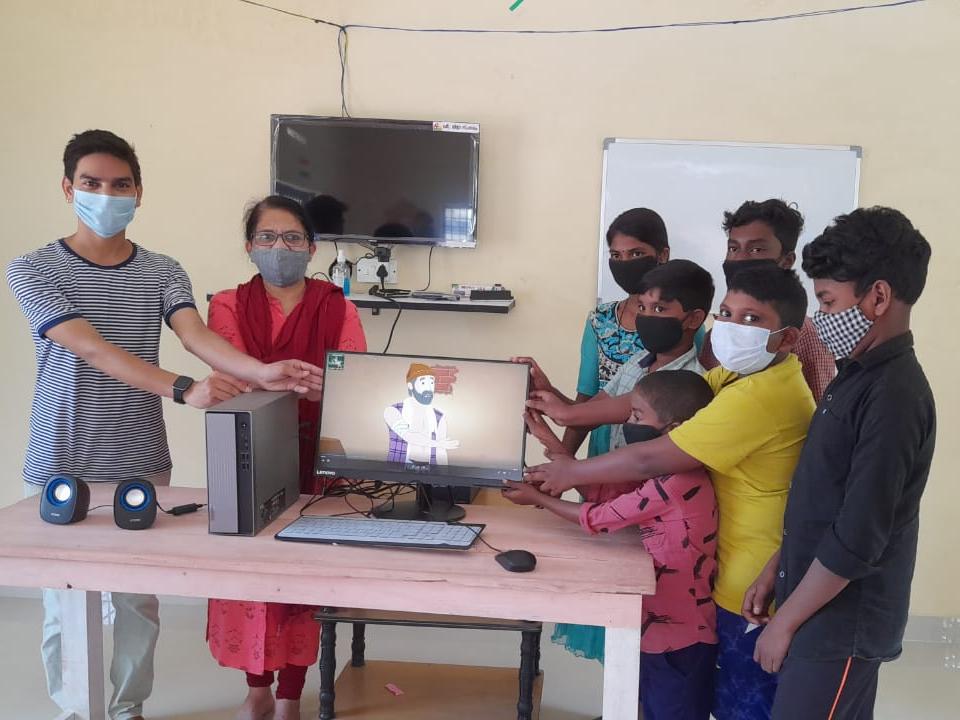
CAbC MSSRF provided the opportunity to reach the tribal youths for their education purpose by an SBI Youth Fellow.
Apart from the tribal students’ education, the trees of the M.S. Swaminathan Botanical Garden were also digitalized with the support of these students which was one of the innovative aspects done during this project. The trees in the campus were QR-coded and documented digitally. These documents were handed over to the Garden Manager of M.S. Swaminathan Botanic Garden for further improvement and the addition of data into it. While a tree is being read with the QR code, information such as scientific name, common English name, vernacular name, family and common uses of each of the trees will be available in mobile. Support of students was crucial in completing this activity and many a student supported the programme for finding the right trees in the campus with the support of experts and fixing the QR codes to it.
Evaluation of the program was also crucial since it showed the assimilation of the subject in the student’s mind. In order to evaluate the learning of students, periodic tests and practicals were organized on monthly basis. A 30 mins break was allotted in which students were able to play games, discuss the topics among themselves. The attendance was monitored with the help of a third-party Android app. Students regularly attended the classes and found 90% attendance altogether. This program could rightly make a change in the mindset of tribal youths towards biodiversity and impregnated conservation thoughts that may lead to sustainable ecosystem conservators in the future. The basic computer education made them reach the unreached in every aspect of knowledge management. The program was supported by SBI Youth for India Program by SBI Foundation and was implemented by Mr. Ankit Sengar, SBI Youth for India Fellow from Tarsaur, district Jalaun of Uttar Pradesh.

